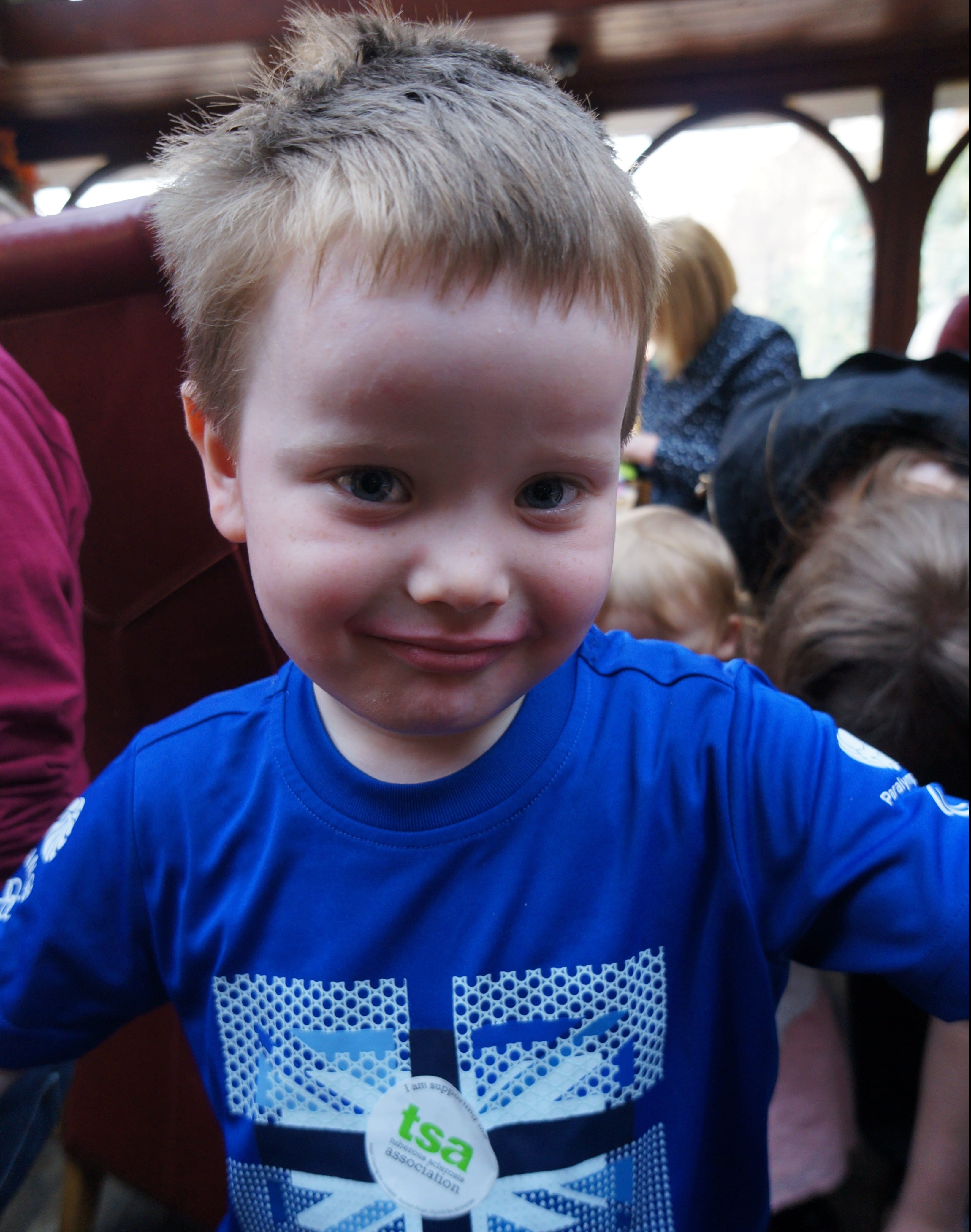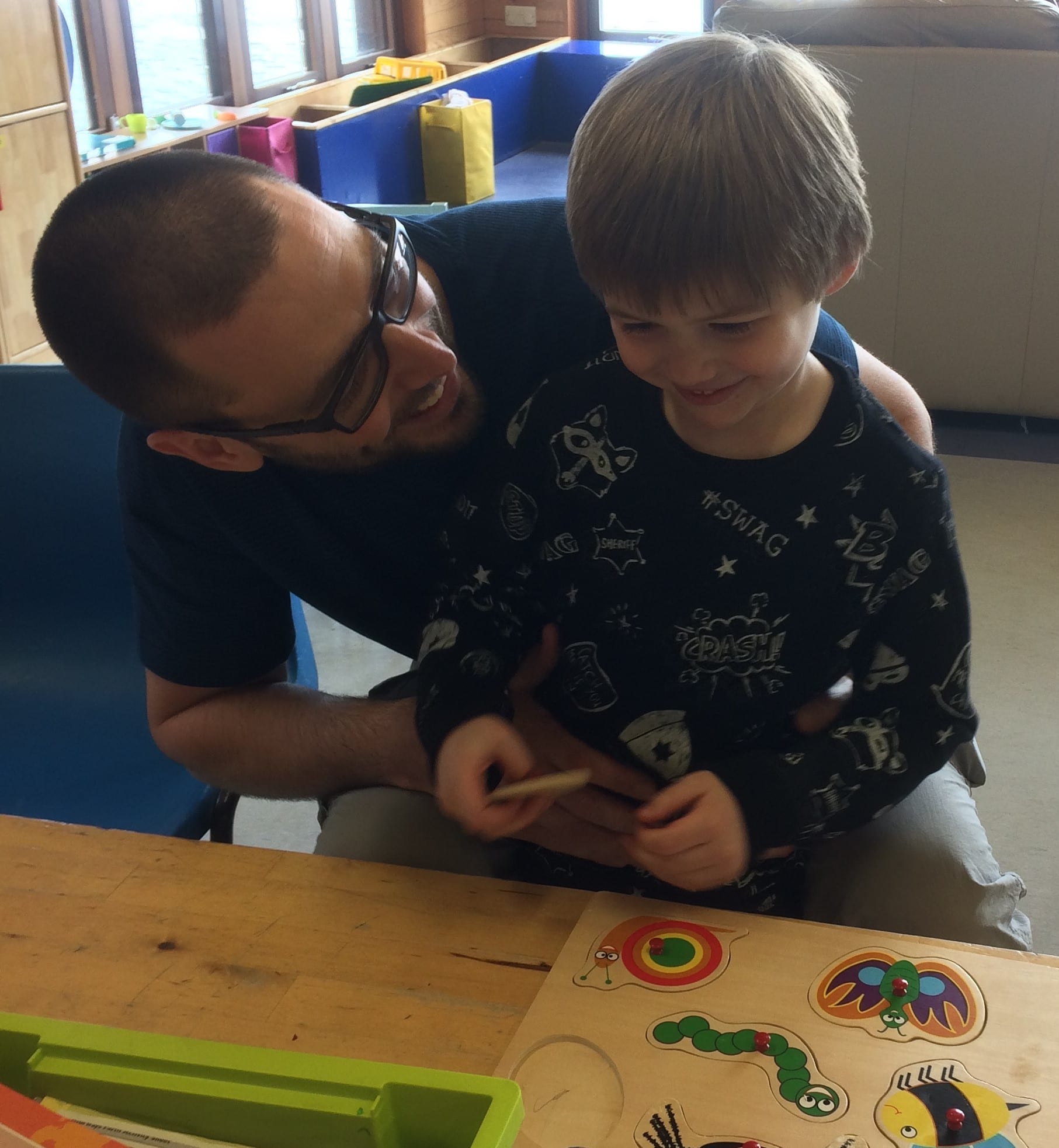Early years and childhood
Advice on early years and childhood when living with Tuberous Sclerosis Complex
When a child is diagnosed with Tuberous Sclerosis Complex (TSC) it can be a confusing, stressful and overwhelming time for everyone involved.
It is common for parents and loved ones to struggle to take in all of the information given to them about the condition and what it might mean for their child.
Here, we provide some useful guidance and information on TSC and the early years, including how TSC might present itself, getting the healthcare your child deserves and accessing education.
Remember: TSC’s impact is different for everyone
As you get to know more about TSC and its effect on the body, it is important to remind yourself that TSC means something different to everyone affected by the condition.
Just because one person has certain features of TSC does not mean that another person will, with the impact TSC having a sliding scale of severity for every individual.
As the effects of TSC are so variable, the level of support that you and your family may need will also be different to others. The amount of support you and your child need will begin to be clear following diagnosis of TSC and regular monitoring of your child.
Common ways TSC presents itself in newborns and children
There are a number of features of TSC which might present themselves in newborns and children. Some of the most common are listed here. However, if a child lives with TSC it is not a certainty that they will present with any of these, with each TSC story being unique.
More information on infantile spasms in TSC can be found here. With thanks to the European TSC Association, we are also pleased to share the below videos discussing infantile spasms in detail, the importance of early intervention and treatment options.
Often, the first sign of TSC in a young child is epilepsy. This could begin with infantile spasms and then develop to other types of epilepsy as the child grows older.
It is not always possible to control all of the seizures that a child (or anyone of any age) has with TSC, with the target often being management of the epilepsy in a way that is most beneficial to the individual depending on their circumstances and lifestyles.
More information on epilepsy in TSC can be found here.
A person living with TSC may develop challenges with intellectual ability, including problems with speech/language development. There is a very broad range of intellectual ability in people living with Tuberous Sclerosis Complex (TSC), with cognitive challenges ranging from zero to profound. The likelihood of someone living with TSC and also having intellectual ability challenges loosely depends on what other TSC-relates issues that they have, such as epilepsy.
Problems with intellectual ability may start to present themselves in early childhood. Some children living with TSC appear to develop at a normal rate until the onset of seizures, at which point their development slows or potentially goes backwards. If a child living with TSC continues to have seizures that are not being actively managed or are not responding to treatment (called ‘intractable seizures’) their likelihood of intellectual ability challenges increases.
Although people living with TSC and intellectual ability challenges typically also have epilepsy, many individuals live with TSC and have no significant intellectual ability challenges despite also having seizures.
More information on intellectual ability in TSC can be found here.
Nine out of every 10 people living with Tuberous Sclerosis Complex (TSC) develop TSC-associated neuropsychiatric disorders (TAND) at some point in their lives. TAND disorders and issues including autism, attention deficit hyperactivity disorder and anxiety.
As is the case with learning difficulties and cognitive challenges, a person living with TSC may be told that they have TAND as it begins to present itself during childhood.
More information on TAND can be found here.
Primary or coordinating healthcare professional
Once a child’s TSC diagnosis has been made, your first step should be to establish who is your child’s primary or coordinating healthcare professional. The primary healthcare professional is often a clinician who first diagnosed TSC in your child and could be any number of specialist clinicians, including:
- Paediatrician
- Geneticist
- Neurologist (should epilepsy be diagnosed)
- Family doctor (such as a GP)
The child’s primary healthcare professional’s role is to monitor your child as during their infancy and childhood, working with other specialists as needed.
Ensuring the care and support that your child deserves
The support and care that your child needs will depend on how much TSC impacts on their life and the lives of those around him. However, there are some important steps that should be taken from all.
There are specialist NHS TSC clinics located throughout the UK. These clinics a focused on the care and management of people living with TSC, with some clinics having a speciality in a specific area of TSC (such as lung problems, kidney problems etc.)
Clinicians at NHS TSC clinics are very knowledgeable of TSC, dedicating much of their professional lives in helping to ensure that people affected by TSC get the best available treatment and care.
The TSA is proud to work very closely with NHS TSC clinics. We strongly recommend that everyone diagnosed with TSC is assessed for their suitability for accessing an NHS TSC clinic.
More information on how to be referred to an NHS TSC clinic here.
Just before or very shortly after your child was born, you should have been given their Personal Child Health Record (PCHR). PCHRs are known as ‘Red books’, because of their distinctive look.
The PCHR ‘red book’ records important health information about your child, such as their weight, vaccinations and any illnesses. The diagnosis of TSC should be clearly recorded in your child’s red book, to ensure that clinicians are clearly made aware of the diagnosis and understand monitoring or care requirements.
More info on the red book insert can be found here.
The first-ever UK clinical guidelines on the diagnosis, care and management of people living with TSC were recently published. To encourage clinicians to act on the recommendations within the guidelines, the TSC have developed a clinician summary of its key takeaways.
The TSA’s summary of the UK clinical guidelines can be downloaded here.
Our summary has been widely shared across UK TSC clinics, with clinicians across all healthcare settings encouraged to use our clinical guidelines summary to improve care of people living with TSC.
The TSA have also shared the clinical guidelines, in full, with the TSC community. We strongly recommend that everyone affected by TSC reads our clinical guidelines summary to consider how the recommendations may relate to their own individual clinical circumstances, helping to structure any questions regarding their care that they might have.
More information on the UK clinical guidelines for TSC care can be found here.
School and education
Many children with TSC attend mainstream schools and nurseries, with some children getting extra support within these settings.
Some children may need less support as they grow older while others may need more.
If a school feels that it is unable to meet a child’s needs it may ask external agencies to help or ask the local education authority to make an assessment of the child’s special educational needs (SEN).
A document called a Statement of Special Educational Needs may be issued which sets out how the needs will be met, including whether the child needs any extra support and how much.
More information on school and education for people living with TSC can be found here.
Make a one off or regular donation
£10 Can allow us to send a welcome pack to a family who has just received a life-changing TSC diagnosis, ensuring that they do not go through this time alone.
£25 Can help us develop materials that are included in our support services, flagship events or campaigns.
£50 Can provide laboratory equipment for a day’s research into the causes, symptoms, management or treatment of TSC.
To provide help for today and a cure for tomorrow








